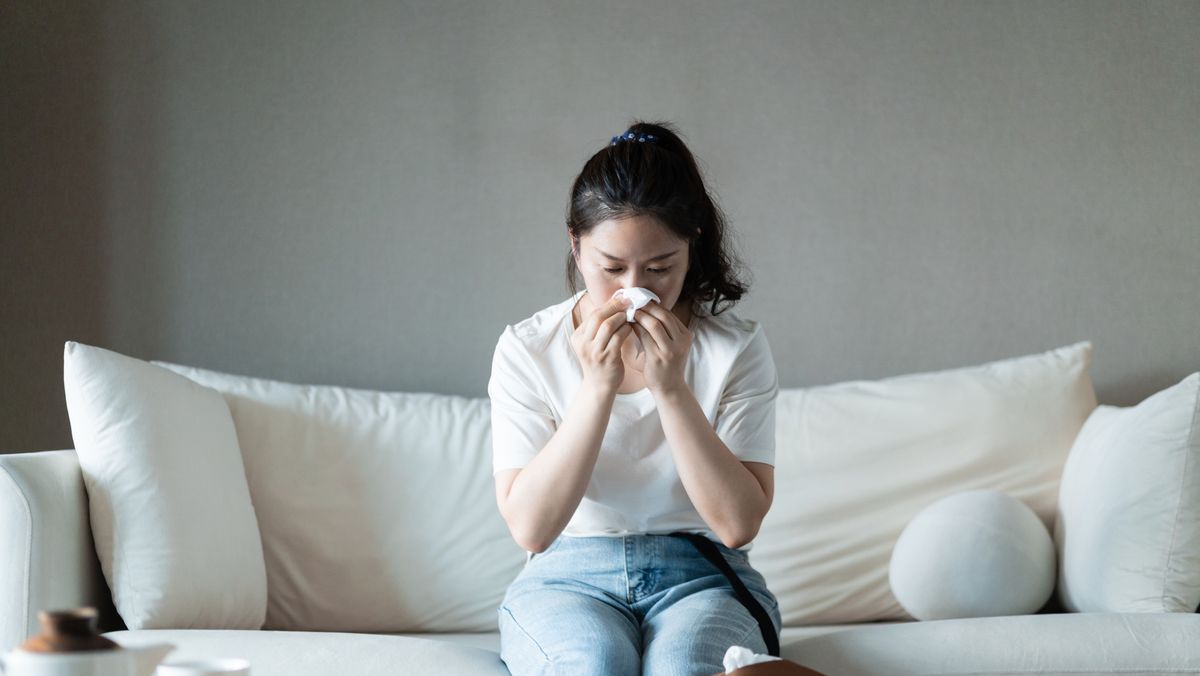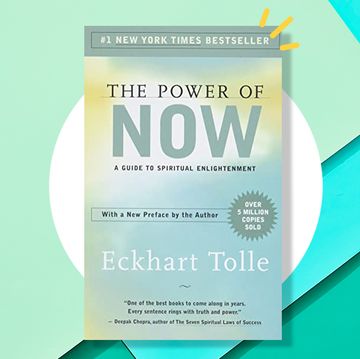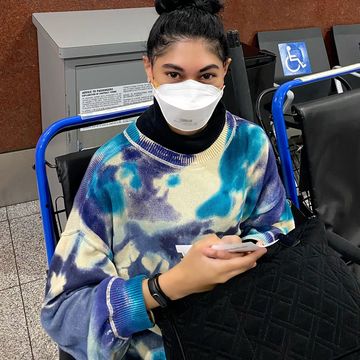The U.S. has now been living with COVID-19 for more than two years. And, unfortunately, new cases still continue to occasionally spike across the country.
By early 2021, the Delta variant caused nearly 99 percent of COVID-19 cases in the country. Then in late November 2021, Omicron made its way to the states for yet another wave of the pandemic.
Although restaurants are back in service, kids are back in school, the corporate world is slowly but surely recovering, and cases are down, people are still being diagnosed with COVID everyday. By now, you've probably become somewhat of an expert on how to keep you and those around you safe, as well as the main symptoms and what to do if you develop them (quarantine ASAP). You may even have your own at-home COVID-19 test in your medicine cabinet for the just in case.
Meanwhile, others are struggling with the side effects of long COVID and are constantly looking for answers as to why their symptoms haven't cleared up. There is still plenty of research to be done on these cases, but in the meantime, taking expert advice is crucial.
Sign up for WH+ for unlimited site access and more
You can still take certain measures to protect yourself, of course. (Get vaccinated against COVID-19, get your boosters, and wear a mask when you’re indoors in public areas where the spread of COVID-19 is moderate or severe.) But these steps become even more of a necessity as winter approaches and flu season starts to pick up. Yes, COVID and the flu are two different things, but there will most likely be an increase in the spread of respiratory droplets from people around you sneezing and coughing.
Meet the experts:
Ramprasad Gopalan, MD, is a Florida-based infectious disease physician.
Eudene Harry, MD, is an emergency medicine physician in Orlando, Florida.
Amesh A. Adalja, MD, is a senior scholar at the Johns Hopkins Center for Health Security.
Joshua Zeichner, MD, is the director of cosmetic and clinical research in dermatology at Mount Sinai Hospital in New York City.
Here's what you need to know about typical COVID-19 symptoms, how long the virus and its symptoms tend to last, and what you can do to recover faster.
What are the symptoms of COVID-19?
It can be difficult to tell the difference between COVID-19 and the seasonal flu, but the CDC lists the following as possible COVID-19 symptoms:
- Fever or chills
- Cough
- Shortness of breath or difficulty breathing
- Fatigue
- Muscle or body aches
- Headache
- New loss of taste or smell
- Sore throat
- Congestion or runny nose
- Nausea or vomiting
- Diarrhea
With a severe case of COVID-19, a person may experience weakness, lethargy, and fever for a prolonged period of time. However, in some cases, a person might not even show symptoms of having the virus but could still test positive if they’ve been exposed to it.
Evidence also suggests that people diagnosed with COVID-19 are starting to develop rashes on the skin. These rashes can vary in severity and location on the body, but most of them are erythematous, which means that they look patchy, red, and sometimes cause mild itching. “We don’t understand exactly why, but many viruses that cause upper respiratory tract infections also cause rashes in the skin known as exanthems,” Joshua Zeichner, MD, director of cosmetic and clinical research in dermatology at Mount Sinai Hospital in New York City, previously told WH.
If you're showing any of these symptoms and think you've been exposed or in contact with someone with the virus, the CDC recommends calling your doctor first before showing up to their office to get tested—they'll be able to determine if it's worth it for you to come in to get tested or to do a home test.
Which symptoms generally last the longest?
For a typical case of COVID, the symptom that tends to last the longest is fatigue (lasting three months or longer), says Ramprasad Gopalan, MD, an infectious disease specialist. This differs greatly from those who are experiencing so-called "long COVID," who typically experience two or more symptoms including, fatigue, dyspnea (or labored breathing), chest pain or tightness, and cough.
Does it matter what COVID strain you have?
Nope. The CDC has not issued any recommendations to differentiate between how you should act when you have one strain of COVID-19 vs. another. Currently, the Omicron variant dominates COVID-19 cases in the U.S. and makes up roughly 62% of cases per CDC data.
“There’s no data” that suggests the different variants cause a different length of time in symptoms, says Amesh A. Adalja, MD, senior scholar at the Johns Hopkins Center for Health Security.
How long does COVID-19 last in a person?
How long the symptoms last depends on the severity of the case. With more mild cases (meaning that symptoms are similar to the common cold or flu), people tend to get better on their own in 10 to 14 days, says Eudene Harry, MD, an emergency medicine physician in Orlando, Florida.
In severe cases, the virus may travel to the lungs and cause pneumonia, and the symptoms may last longer. “These individuals are usually hospitalized and treated aggressively and symptomatically until symptoms resolve,” Dr. Harry explains. In those cases, she says, doctors will run a CT scan of the lungs to see how the virus is affecting the lungs, and to determine whether or not it’s improving or getting worse.
What about long COVID?
New data from a recent survey indicates that nearly one in every five American adults who have had covid are still experiencing long COVID, according to a report from the CDC.
Gopalan explains that the length of long COVID depends on the health status of the person before they got infected, the severity of their illness, and the spectrum of symptoms they experience.
"For moderate to severe disease, expect up to 3 months or longer. There is a diverse range of recovery based on multiple factors," says Gopalan. "Patients who were admitted to the intensive care unit have shown persistent symptoms lasting up to one year."
What should I do if my symptoms won’t go away?
You should be going to see your primary care provider for blood work and a visit if you're post COVID. But if your covid symptoms persist and are affecting your daily living activity, Gopalan recommends going in for routine evaluations by your physician.
And before you consider going on any special diets or drinking specialized juices, just know that the goal is to maintain habits that benefit your overall health. "Although no specific recommendations for an anti-inflammatory or balanced diet exist for COVID patients, we know that the patient’s overall health impacts the severity and duration of illness, so any measures to improve health are beneficial," says Gopalan.
Alternatively, those experiencing or recovering from long COVID may need inpatient and outpatient rehabilitation when needed or exercise as tolerated or under the care of a physician. And similar to routine cautionary measures, minimizing exposure to sick patients and receiving a vaccination and booster will be beneficial long-term.

Sabrina is an editorial assistant for Women’s Health. When she’s not writing, you can find her running, training in mixed martial arts, or reading.












